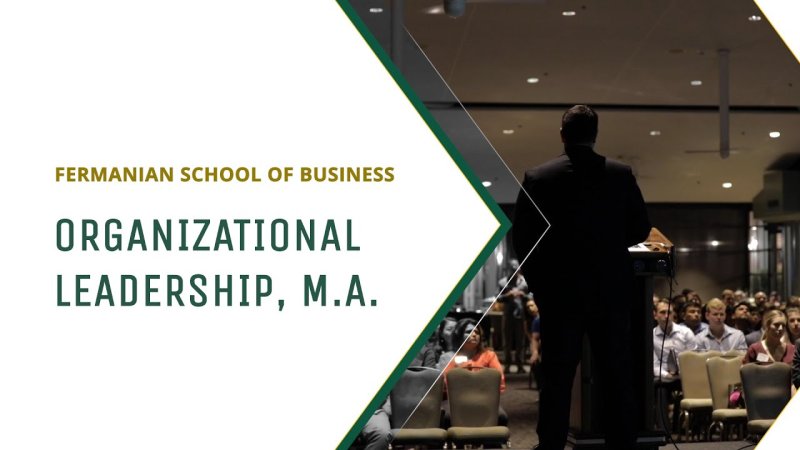
In today's rapidly evolving professional landscape, we often hear about the importance of technical expertise and specialized knowledge. While these "hard skills" remain valuable, there's a profound shift happening in what employers seek in their top talent. As automation and AI continue to transform industries, the skills that separate humans from machines are increasingly valuable.
How the workplace is evolving in 2025
The workplace of 2025 looks remarkably different from just a few years ago. Remote and hybrid work arrangements have become standard practice across industries, dissolving traditional boundaries between home and office. Digital collaboration tools — like Google Docs, Slack, and Zoom — have transformed how teams coordinate, while AI-powered technologies handle tasks that once required human hands.
What does this mean for the workforce? Professionals must adapt quickly to remain relevant. According to the World Economic Forum's Future of Jobs Report 2025:
- Employers expect approximately 39% of workers' core skills to change by 2030
- Technological disruption is projected to create 170 million new jobs and displace 92 million existing ones by the end of the decade, resulting in a net increase of 78 million jobs globally
This significant workplace transformation makes adaptability and continued learning more critical than ever.
The growing demand for human-centered problem solving
As technical tasks become automated, organizations are placing unprecedented value on irreplaceable human capabilities. Emotional intelligence, creative problem-solving, ethical decision-making, and adaptive leadership are attributes that even the most sophisticated AI cannot replace.
Today's most successful organizations recognize that technical expertise alone won't drive innovation or build resilient teams. Instead, they seek professionals who bring a balanced portfolio of technical knowledge and human-centered skills, creating workplaces where both efficiency and empathy can thrive.
The Most In-Demand Skills for Modern Professionals
Adaptive Leadership in Times of Change
The ability to guide teams through uncertainty and transformation has become essential in today’s rapidly evolving business environment. Adaptive leaders excel at navigating ambiguity, making decisions with incomplete information, and adjusting strategies as conditions change.
Adaptive leadership involves:
- Anticipating industry shifts before they become obvious
- Building resilient teams that can pivot quickly
- Maintaining steady progress during periods of disruption
- Embracing innovation while managing risks effectively
In practice, this might look like a project manager who successfully transitions their team to a new collaboration platform while maintaining productivity, or a department head who restructures workflows to accommodate hybrid working arrangements without compromising quality.
Emotional Intelligence and People Skills
Emotional intelligence — the ability to understand and manage your emotions while recognizing and influencing the emotions of others — has moved from a "nice-to-have" quality to a must-have professional asset.
In today's collaborative work environments, professionals with high emotional intelligence:
- Build stronger relationships across teams and organizational hierarchies
- Manage conflict more effectively
- Create psychologically safe environments where innovation can flourish
- Navigate difficult conversations with empathy and clarity
A healthcare administrator with strong emotional intelligence might recognize when their staff is approaching burnout and implement supportive measures before quality of care suffers. Similarly, a team leader might sense unspoken concerns during a meeting and encourage issues to be addressed constructively.
The M.A. in Organizational Leadership program at PLNU places special emphasis on developing these emotional intelligence competencies through experiential learning and targeted reflection.
Critical Thinking and Problem Solving
As routine tasks become increasingly automated, employers place a premium value on professionals who can analyze complex situations, identify underlying problems, and develop innovative solutions. Critical thinking involves:
- Evaluating information from various sources
- Recognizing patterns and connections
- Challenging assumptions and conventional wisdom
- Considering the long-term implications of potential solutions
In marketing, critical thinking might involve analyzing campaign data to uncover unexpected customer insights. In healthcare, it could mean redesigning patient intake procedures to improve efficiency and patient experience.
Digital Literacy and Tech Adaptability
While specialized technical skills remain important, broader digital literacy— the ability to adapt to and leverage new technologies — has become essential across all industries. Today's professionals need to:
- Quickly master new digital tools and platforms
- Understand how emerging technologies impact their industry
- Evaluate when and how to implement new tech
- Maintain productivity during digital transitions
This doesn't mean everyone needs to become a software engineer, but all professionals should develop comfort with digital collaboration tools, data visualization platforms, and industry-specific technologies.
Both PLNU's MBA and M.A. in Organizational Leadership integrate digital literacy throughout their curricula, ensuring graduates can navigate today's technology-driven workplace with confidence.
Communication Across Teams and Platforms
The ability to communicate effectively has always been valuable, but today's work environments require an expanded set of communication skills. Modern professionals must excel at:
- Conveying complex ideas clearly across digital platforms
- Adapting communication style for different audiences and contexts
- Building rapport in virtual environments
- Facilitating productive, remote discussions across teams with diverse perspectives
A project manager might need to create engaging virtual presentations that maintain audience attention, while a team leader might develop strategies for ensuring remote team members feel included in remote meetings.
Intercultural Competence and Global Awareness
As organizations become increasingly global, the ability to work effectively across cultures has become non-negotiable. Professionals with strong intercultural competence:
- Recognize and respect cultural differences in communication and decision-making
- Adapt leadership and collaboration styles to diverse cultural contexts
- Build inclusive environments where team members from all backgrounds can thrive
- Leverage diverse perspectives to drive innovation
This might look like an executive who successfully manages teams across multiple countries, or a product designer who creates solutions that resonate with customers from diverse cultural backgrounds.
Data-Driven Decision-Making
In an era of unprecedented data at our fingertips, employers seek professionals who can translate information into actionable insights. This involves:
- Interpreting complex data sets to identify meaningful patterns
- Balancing data-driven insights with human judgment
- Communicating data findings in accessible ways to non-technical stakeholders
PLNU's MBA program equips students with both the technical skills to analyze data and the strategic mindset to apply those insights to real-world business challenges.
Resilience and Agility in a Rapidly Changing World
Perhaps the most fundamental skill in today's workplace is resilience — the ability to maintain effectiveness through setbacks, disappointments, and unexpected changes. Resilient professionals:
- Recover quickly from setbacks and learn from failures
- Maintain perspective during stressful situations
- Adapt rapidly to changing circumstances
- Support others through challenging transitions
This might manifest as a team leader who helps their department navigate a corporate reorganization, or an entrepreneur who pivots their business model in response to market disruption.
How to Develop the Skills Employers Are Looking For
Investing in professional growth through education
Formal education remains one of the most effective ways to develop the complex skill sets employers seek. Graduate programs offer structured learning environments where professionals can:
- Gain exposure to current best practices and emerging trends
- Develop new skills through applied projects and case studies
- Build networks with like-minded professionals
- Receive feedback from experienced faculty and peers
When choosing an educational program, look for options that emphasize experiential learning, offer flexibility to accommodate professional obligations, and maintain strong connections with industry.
Choosing the right degree to match your career goals
Different graduate programs develop different skill profiles. When selecting a program, consider how each aligns with your specific career aspirations:
M.A. in Organizational Leadership — Lead with purpose
PLNU's Master of Arts in Organizational Leadership program is perfect for those aiming for senior leadership that require a broad organizational perspective. Through a curriculum that balances theoretical frameworks with practical application, PLNU students develop:
- Adaptive leadership capabilities for navigating change
- Enhanced emotional intelligence and interpersonal effectiveness
- Strategic thinking for complex organizational challenges
- Ethical decision-making frameworks for addressing difficult situations
With flexible evening and online formats, our program accommodates working professionals seeking to advance their careers while maintaining extracurricular responsibilities.
MBA — Gain business acumen and strategic insight
For professionals seeking comprehensive business expertise, PLNU's MBA program delivers a well-rounded curriculum that develops:
- Data-driven decision-making capabilities
- Strategic financial analysis skills
- Cross-functional business understanding
- Marketing and operational excellence
Our program's cohort model creates a collaborative learning environment where students build professional networks while developing the diverse skill set today's employers demand.
Shape Your Career — and the Future of Work
As the workplace continues to evolve, professionals who proactively develop the discussed skills will find themselves uniquely positioned to thrive. By investing in your professional development through targeted education and continuous learning, you not only enhance your career prospects but also contribute to creating more effective, humane, and innovative organizations.
Ready to develop the skills that will set you apart in tomorrow's workplace? Explore PLNU's graduate programs designed for working professionals or request more information about how PLNU can help you achieve your professional goals.

